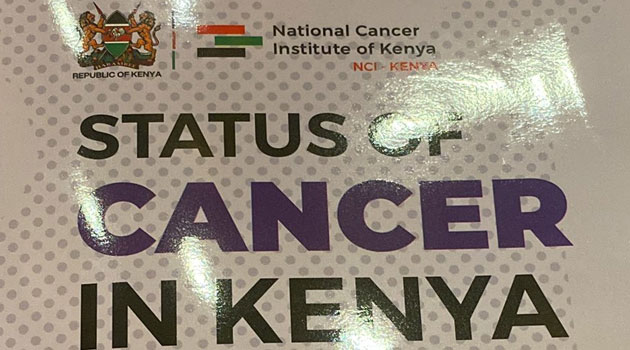
Health Organisations Decry Poor Cancer Services, Urge Government Action » Capital News
NAIROBI, Kenya, Feb 5 – Healthcare organisations, including the Kenyan Network of Cancer Organisations (KENCO) and the NCD Alliance Kenya (NCDAK), have condemned the deteriorating health services for cancer patients, calling on the government to take urgent action.
In a statement marking World Cancer Day, the organisations urged authorities to address critical gaps in cancer care, particularly the unavailability of essential drugs and disruptions in treatment access. They emphasized the need for immediate intervention to protect and ensure the continuity of cancer and non-communicable disease (NCD) services in the country.
Cancer patients across Kenya are struggling to access life-saving treatments, with shortages of key drugs such as Herceptin (trastuzumab).
Public hospitals, including Kenyatta National Hospital (KNH) and Kenyatta University Teaching, Referral, and Research Hospital (KUTRRH), have run out of stock, forcing patients to seek costly alternatives in private facilities. Many who previously relied on NHIF coverage for treatment are now required to pay out of pocket, with a single dose of Herceptin costing approximately Ksh [insert amount].
The organisations also raised concerns over technical failures within the Social Health Authority’s (SHA) registration and authorisation systems, which have further complicated access to treatment. Patients who had pre-paid NHIF premiums expecting an automatic transfer to SHA are now being asked to make fresh payments, increasing their financial burden and causing disruptions in treatment.
Despite government assurances of a seamless transition, numerous patients have been turned away from treatment centres, exacerbating their struggles. The organisations noted that these failures have led to life-threatening interruptions in treatment plans and called on SHA to urgently address the system failures.
They further urged the government to optimise radiotherapy services by maintaining machines, expanding capacity, and engaging private hospitals through public-private partnerships. They also called for increased investment in diagnostic infrastructure such as PET-CT scans to enhance early detection and treatment of cancer.
The call for reform comes as cancer remains a leading cause of mortality in Kenya, with thousands of patients facing significant barriers to timely and affordable care.